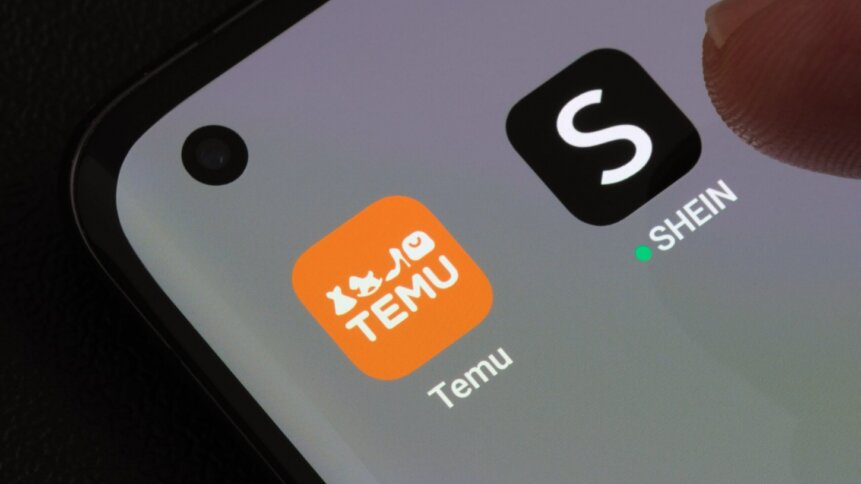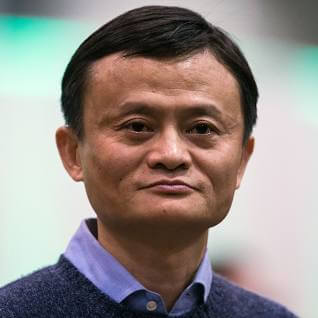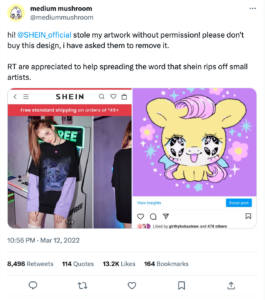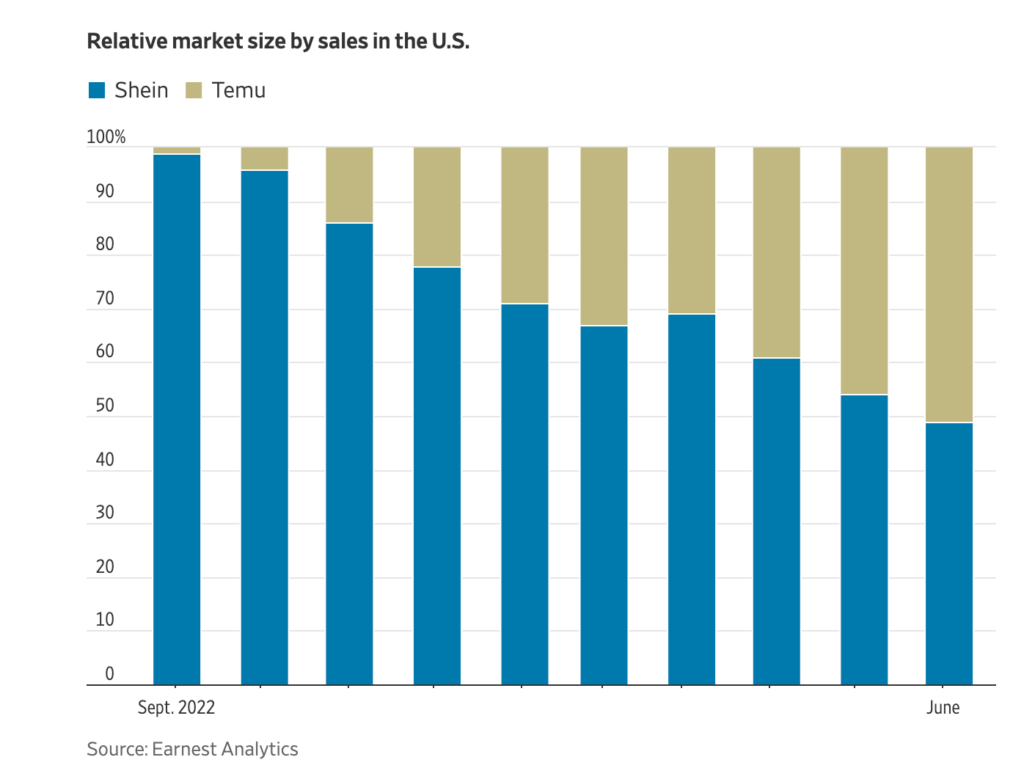Shein vs Temu: an ecommerce explainer

• Shein vs Temu is probably the biggest ecommerce battle you’ve never heard of.
• The retailers are at war over exclusivity clauses and hoarded resources.
• The outcome of the Temu lawsuit has yet to be decided.
Online retailers Shein and Temu are battling it out in America, with Temu filing a lawsuit against its rival. Despite the suit making international headlines, many are unaware of either company’s existence – here’s a rundown of the situation.
Shein and Temu are both Chinese-owned ecommerce companies. They’re two of the multi-billion-dollar businesses that operate almost completely digitally, often on apps downloadable on the Apple App Store or Google’s Play Store. So how come you’ve never heard of them?
You may be more familiar with the longest running player in the market – Alibaba. For a while, the site was the most popular online shopping destination and the world’s fastest growing e-commerce market.
Its customer base is huge, and the range of products on offer even larger. Part of the reason for its profit margins is a lack of overheads; there aren’t vast warehouses storing all its offerings, which range from leather belts to industrial compressor parts.
The business model is called dropshipping, a form of supply chain management whereby the seller transfers orders and shipment details to either the manufacturer or a fulfilment house, which then ships goods direct to the customer.
According to Shopify, a platform that so-called entrepreneurs can use to create their own (dropshipping) online shop, the business model is attractive because it requires minimal investment and allows you to focus more on marketing and business development.
In the age of automation, the whole process of dropshipping can be done via a software that is designed to easily integrate with ecommerce platforms to provide a seamless front-end shopping experience and a simplified backend experience for businesses. In some cases, it can be extended into marketing efforts, too.

Jack Ma. Photographer: Lam Yik Fei/Bloomberg via Getty Images.
It also takes away responsibility for product quality and is a popular way for e-commerce platforms to run. Since China is known the world over for its manufacturing monopoly, it makes sense that e-commerce sites operating in this way often have ties to the country.
However, after complaints about Alibaba’s monopolistic trading practices and data collection, a huge antitrust probe into the company saw the Chinese government dish out its biggest ever fine – $2.8 billion. The company lost 75% of its market value between its peak in October 2020 and the same month two years later.
Its founder, Jack Ma, lost his status as “Daddy Ma” in China and has been seldom seen since the government began investigating his various income sources.
Speaking of data, another ecommerce platform that’s gaining an increasingly large market in the US and Europe is Alibaba-owned AliExpress. To order from the site, which launched in 2010, users have to sign up.
Signing up means, manually or by connecting a social media profile, you provide information including your age, nationality, gender, and interests. Other information asked of you includes marital status, children’s birthdays, the industry you work in, your average salary, an estimate of how much you spend when shopping online per month, and other online shops you use.
All of this, besides your kids’ birthdays and other online stores you use, is a requirement to creating an account. More savvy consumers will connect the dots: without wasting time on cookies, AliExpress will know not to recommend his-and-hers slankets to unmarried shoppers.

Source: Pinterest.
The rise of Shein
This brings us to another ecommerce boon: social media marketing. That’s where Shein’s creator Chris Xu triumphed with savvy SEO use and TikTok strategy. The shop sells fast fashion at very cheap prices – enabling TikTok ‘haul’ videos that show creators unboxing piles of (individually wrapped in plastic) items of clothing.

The topic “Shein haul” has 4.5 billion views.
Worth $100 billion in 2022, it was founded in 2008 as an e-commerce site selling wedding dresses made in China under the name SheInside. The focus shifted to fast fashion in 2015, when the site rebranded as Shein (which, by the way, is pronounced “she-in”).
shein is pronounced she in pic.twitter.com/JTprqlEmr2
— ✦ (@rei1000000) October 2, 2021
The impact of COVID-19 and lockdowns pushing consumers online brought a boom for the company, which has come under fire for labor practices and the role of fast fashion in pollution. It produces thousands of garments within tiny timeframes, keeping up with the ‘trend cycle.’

Part 1 of a Shein haul posted to TikTok.
Not only does dropshipping make this possible, but Shein uses white labelling. The practice is the reason that two identical tops might appear to have been made by different retailers: one product is mass produced and distributed amongst manufacturers, who will add their own label or logo and sell to consumers.
Shopify has a convenient listicle of white label items, which it presents as an opportunity for you (yes! You!) to “go to market this week with your own brand of massage gun, memory foam dog bed, or skin care serum.”
It means, like dropshipping, that sellers don’t have to manufacture goods themselves and can quickly jump on market trends. It also means market saturation, no quality variation, and underselling.
It’s rumored that Shein is now using AI to track trends and create its own offerings accordingly, almost always at a much lower price than what’s already available. This might also be what’s to blame for its well-documented habit of producing blatant rip-offs of artists’ work at a fraction of the original’s price. The artists don’t receive credit or royalties.

A tweet from an artist whose artwork was copied from Instagram onto a Shein shirt.

A clothing designer whose swimwear was copied by Shein.
It might be that increased awareness of Shein’s climate impact and theft of intellectual property are responsible for the fact that since its peak in 2022, sales have taken a downturn.
Or, and this seems to be the opinion of the company, it might simply be that a rival has begun poaching its customers.
Shein vs Temu: the nature of the beef
Ecommerce site Temu only reached the US in September, 2022. The digital marketplaceis the no.1 free shopping app on both the App Store and Play Store, and offers any product from car accessories to clothes, from home appliances to baby shoes.
Of course, everything on sale is very cheap because, so the line goes, Temu is “connecting customers directly to suppliers.” The reverse-manufacturing model supposedly helps the company decrease waste, and whatever it’s doing has worked: its monthly user base is three times that of Shein.
It does, even if only nominally, address all of the issues that Shein represents: dropshipping and infringement of intellectual property are strictly banned.
A legal battle has begun between the competing companies as they fight for the American market share. The latest blow came in the form of Temu’s antitrust lawsuit against Shein in federal court in Boston on July 14.
It alleges that Shein forced Chinese clothing manufacturers into signing exclusive agreements with the online fashion retailer and threatened them with fines and penalties if they worked with Temu.

Naturally, Shein denies the accusation: “We believe this lawsuit is without merit, and we will vigorously defend ourselves,” a spokesperson said. The company doesn’t sell within China and there are questions over whether China will step in, as it did against Alibaba.
While the lawsuits are filed in America, both companies are are distancing themselves from China amid Beijing/Washington disputes, as some US lawmakers push for a blanket ban on Chinese apps. While its suppliers and back offices are still in China, Shein’s headquarters have been relocated to Singapore.
Temu calls itself a Boston-based company and has removed from its site any links to Shanghai-based PDD Holdings, which owns it.
Besides the issue of price control, why is Shein trying so hard for a monopoly, given the quantity of apparel suppliers in China? The answer could lie in a post on Xiaohongshu, China’s lifestyle and experience sharing community.
The poster discusses the difficulty that her jeans factory is having in sourcing cotton not from the Xinjiang province. The US fashion industry is leaning away from Xinjiang cotton because of a law that came into force in 2021, granting US border authorities greater powers to block goods linked to alleged forced labor in China.
With limited availability, Shein is clearly trying to get ahead of Temu in the American market by hoarding the approved cotton. Pesky human rights, messing with the supply chain!
It’s not just cotton, though: as of May, Shein has required all of the approximately 8,338 manufacturers supplying or selling on its platform to sign exclusive-dealing agreements, preventing them from selling on Temu or supplying products to Temu sellers, according to Temu’s filing.
Shein is bound to bite back soon, and with a better understanding of the ecommerce platforms, we’re sure you can’t wait to follow along.










